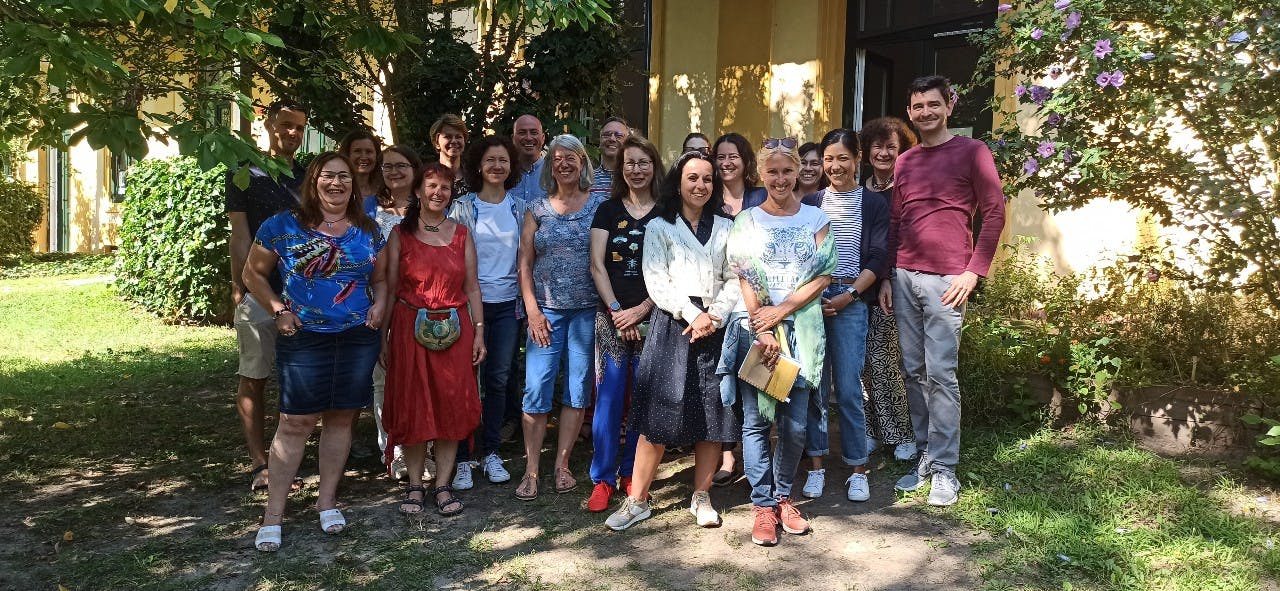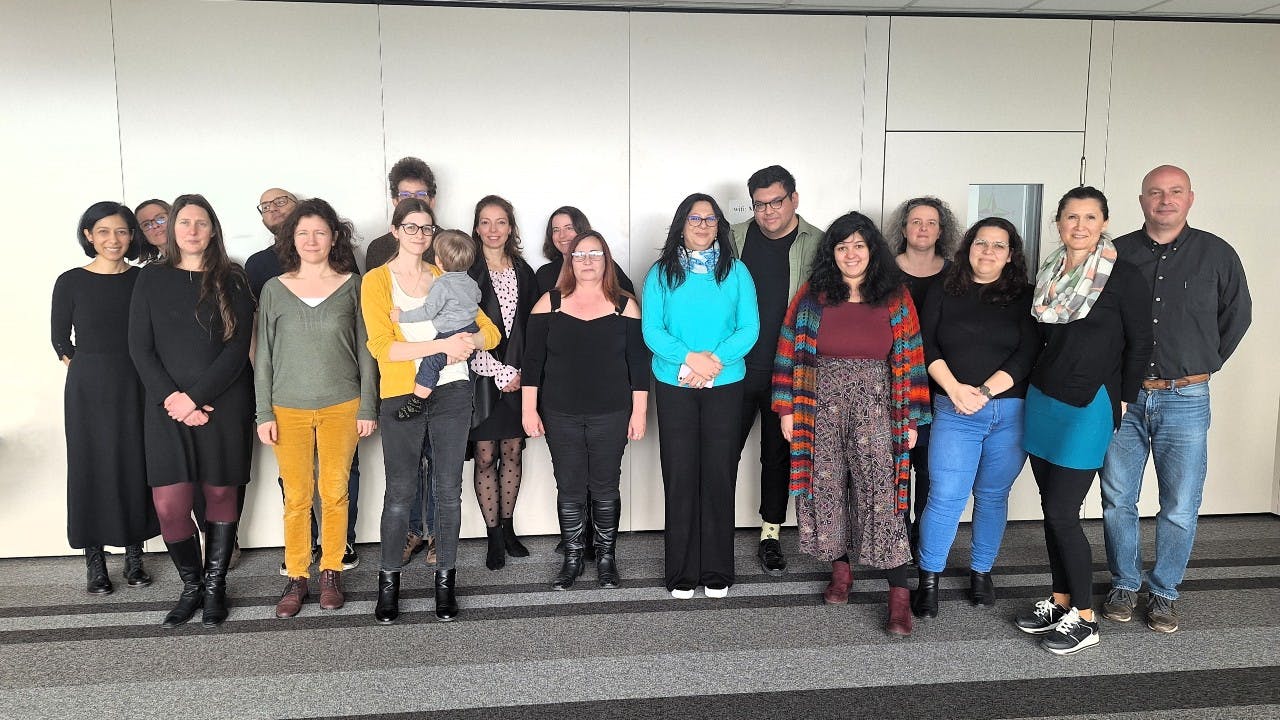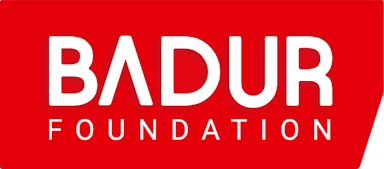Based on the valuable lessons learnt from its previous programmes, in 2023 the Foundation launched its newest and most innovative organisational development programme for charities and social enterprises.
The Incubation Programme offers complex and tailored organisational development via workshops, individual expert consultations, peer learning opportunities and financial support. Through these means, the Foundation hopes to help charities and social enterprises to operate in a stable, sustainable and professional way even in the rapidly changing social, political and financial environment of our current times. The professional partner of the programme is SIMPACT.
The Incubation Programme focuses on the following development areas: 1. Strategic goals and impact measurement 2. Fundraising 3. Corporate partnerships 4. Communication 5. Leadership and organisational development, including volunteer management 6. Financial management and planning 7. Process management 8. Business planning (for social enterprises)
The structure of the programme:
The programme consists of three phases: a workshop phase, a one-on-one development phase and a capacity building phase.
1. During the workshop phase, organisations participate in different workshops and start to form their self-diagnosis and development plan.
2. In the one-on-one development phase, organisations detail their development plan with the help of individual expert support and volunteer mentors. At the end of this phase, their self-diagnosis and development plans are complete and they present them to the Foundation.
3. In the implementation phase, organisations receive customised professional and financial help tailored to their needs, and work towards the goals set in their development plans. Moreover, opportunities for peer learning and community building among the organisations are an essential part of this phase. To achieve their long-term development goals the programme provides 2-year support (2024-2025), with an additional 1-year follow-up (2026).
Awardees:
Having reviewed the self-diagnoses and development plans, The Foundation awarded professional and financial support for the first year of implementation (2024) to the following organisations:
1. Dr. Ambedkar School (Dr. Ambedkar Iskola)
The School provides opportunities for a better quality life for highly disadvantaged youth through quality secondary education and extracurricular activities. With the Foundation’s grant, the school will hire a financial expert and develop a financial coding system which will enhance the effectiveness of its financial management by creating up-to-date financial information to the management team. The School will also undertake organisational development in order to increase the wellbeing and motivation of the team so that the organisation can be more effective, grow their social impact and achieve sustainability.
2. Anonymous Ways Foundation (Névtelen Utak Alapítvány)
The organisation supports the rehabilitation of victims of human trafficking and sexual exploitation: from healing and recovery to reintegration into mainstream society. With the Foundation’s grant, the organisation will create and implement a fundraising strategy with the help of fundraising experts, in order to increase and diversify its income sources (private donations, corporate support and public tenders). They will also work on enhancing their internal work processes with a process management expert. In addition, the team will consult with an impact measurement expert to create initial data collection processes. Lastly, the grant provides support towards the salary of a new mentor and community development director in order to create organisational sustainability.
3. BHRG Foundation (BHRG Alapítvány)
The organisation wants to give every child a chance for a fuller, happier life. They focus on helping disadvantaged children facing developmental or attention difficulties through a unique movement therapy (TSMT and HRG) along with supporting parents/carers and professionals. With the help of the Foundation, the organisation will hire a fundraising manager who will implement a fundraising strategy with the help of external experts. The organisation will also work on adjusting its organisational structure to meet its long-term mission and activities, whilst enhancing its leadership skills with the help of an organisational and leadership development expert. Moreover, the Foundation will provide professional support with the theory of change and programme design of the organisation’s new initiatives (a volunteer programme focusing on the development of disadvantaged children and parental education activities).
4. Diversity Foundation (Diverzitás Alapítvány)
Celebrating diversity is at the core of this organisation’s mission as they promote environmental diversity along with the social integration of vulnerable groups. In 2024, the organistion will use the Foundation’s grant to enhance strategic thinking and improve internal processes with the help of a team coach and process management expert. They will also work on creating a fundraising strategy that can help to further diversify their income sources. The Foundation will support the creation of this strategy by providing a grant for a fundraising expert and towards the salary of a fundraiser.
5. Egyesek Youth Association (Egyesek Ifjúsági Egyesület)
Egyesek currently delivers its community work with disadvantaged youngsters via local partners in Nógrád County, in one of the most disadvantaged regions of Hungary. In order to increase the social impact of its activities, they wish to open their own youth centre in Szécsény (in Nógrád County) whilst keeping their outreach work via local partners. To help the organisation achieve these objectives, the Foundation will provide partial financial support towards the purchase and refurbishment of the youth centre. The centre will offer diverse activities aimed at social competence development and empowerment of disadvantaged youth. The Foundation will also professionally support the organisation’s fundraising efforts in order to ensure the long-term sustainability of the youth centre.
6. Shelter Foundation (Menhely Alapítvány)
Shelter Foundation provides vital support for homeless people by operating shelter homes in Budapest and Pest County, and running social integration programmes. Having finished the one-to-one development phase of the Incubation programme, it was established that a deeper organisational diagnosis is required due to the complexity and size of the organisation. First, the Foundation supported further consultations to create a comprehensive organisational diagnosis and development plan. Based on the development plan, Shelter Foundation (SF) will further work with organisational development experts in order to develop the leadership skills of the management team, set up an employee evaluation/feedback system and to improve strategic planning. SF will also consult with a fundraising expert to evaluate current fundraising activities and start initial planning for an overall fundraising strategy. These development activities will be co-financed by the Foundation.
7. UCCU: Roma Informal Educational Foundation
UCCU’s mission is to dismantle stereotypes and decrease prejudices against the Roma community, mainly via informal educational activities in schools and thematic walks in cities of Hungary (Budapest and Pécs). In 2024, with the financial support of the Foundation, they will enhance the professionalism and efficiency of their teamwork with the assistance of an organisational and leadership development expert. Guided by a fundraising expert (financed by the Foundation), the organisation will also create and implement a fundraising strategy in order to increase and diversify its income sources.
Overall support and next steps:
The Foundation will follow the above development processes and provide professional support throughout 2024 to address and tackle any implementation challenges. In November 2024, the organisations will have the chance to present their progress and revised development plans for 2025-2026. Based on the presentations, the Foundation may award further support for the subsequent year(s).


